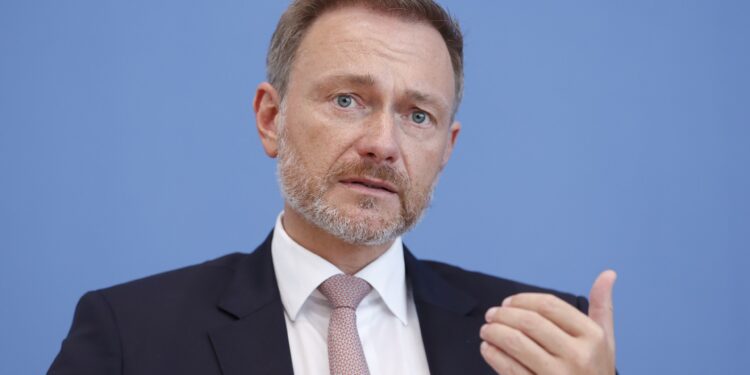German Finance Minister Christian Lindner called on European leaders to redirect their attention from discussions about former US President Donald Trump to preparing for the possibility of him assuming a second term. He stressed the importance of proactively enhancing European competitiveness in light of potential global transformations.
Expressing his concerns during a session at the World Economic Forum in Davos, Lindner highlighted the need for European policymakers to prioritize strategic actions aimed at securing the continent’s economic interests.
He stressed, “We must go beyond mere discussions and focus on preparedness. Europe must be prepared for any geopolitical developments, including the possibility of Trump returning to office.”
The German minister warned against emulating the United States in supporting a wide range of sectors, considering that such an approach is not sustainable in the long term. He sounded the alarm about the desire of EU decision-makers to follow the US model of subsidizing “almost everything,” and urged a wiser and more targeted strategy.
Lindner pointed out that imitating the American model may seem tempting, but Europe needs to be careful about unsustainable subsidies, adding that Europe must do its homework and enhance its competitiveness through innovative and strategic policies instead of relying on blanket subsidies.
The call for transformation comes as geopolitical uncertainty looms and the global economic landscape continues to evolve. Lindner’s statements come as a reminder to European leaders to prioritize sustainability and resilience in the long term, and stay away from potentially risky strategies.
The best defense is attack
As European countries struggle to recover economically after the Corona epidemic, Lindner’s comments are likely to spark discussions among policymakers about the continent’s economic path and the need to enhance domestic competitiveness.
Meanwhile, at the same forum, European Central Bank President Christine Lagarde sent her message to European leaders, stressing the importance of Europe’s offensive economic strategy.
It focused on the belief that a strong attack requires a strong foundation at home, calling for strengthening the European internal market and establishing a capital markets union to enhance financing opportunities for companies.
In her speech, Lagarde stressed that “the best means of defense is attack, and in order to be able to attack properly, you must be strong at home.” This strategic approach emphasizes the need for Europe to strengthen its economic fundamentals as a proactive measure in confronting external challenges.
Lagarde’s call to create a strong European internal market is consistent with the idea of creating a cohesive economic environment within the European Union that has begun to emerge recently. She said that a thriving internal market would enhance the continent’s resilience and competitiveness in the face of global uncertainties.
The focus on capital markets union underscores the need for a unified financial system capable of providing companies with improved financing opportunities.
Many European officials expressed their fear of Trump’s return to power in the United States, and among the officials was German Chancellor Olaf Schulz and Lagarde, who expressed their concerns about the possibility of Trump being re-elected as President of the United States.
Lagarde believes that Trump’s return may mean conflicts over trade protection and military support for NATO, given the way Trump managed the first four years of his term.
The European Union and Trump disagreed during his presidency of America on many items, most notably with regard to trade, NATO, and the environment.



